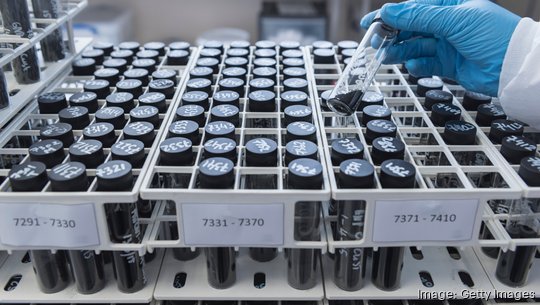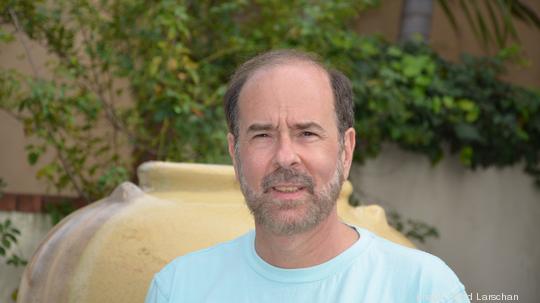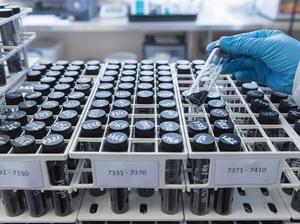
Recently, when MBJ asked Brad Larschan how things were going with the latest crowdfunding campaign for his startup Avadain, he replied, “Oh my God, that’s painful.”
At first glance, this might seem like a curious response. Since launching the campaign on the website Netcapital in February, Avadain — which plans to license out a graphene manufacturing process to advanced material manufacturers, defense contractors, and other potential clients — has raised more than $387,000. Compared to most crowdfunding campaigns, it’s been a strong performer, and Larschan estimates that Avadain will raise at least $1 million by the end of the campaign on May 11.
But that’s a far cry from the ambitious goal of $3.6 million Avadain had initially set, and at this point, Larschan said he’ll be “absolutely thrilled” if the company reaches the $1.5 million mark. The first crowdfunding campaign Avadain ran in 2022 — which raised about $1.37 million — posed its share of challenges, given macroeconomic headwinds and the startup’s relative inexperience in the area.
This campaign, however, has offered even greater tests.
“I thought the last one was difficult,” Larschan said. “This one has been much more difficult.”
'This SVB thing killed everybody'
But what exactly is behind the current challenges in the crowdfunding world?
According to Larschan, the March 2023 collapse of Silicon Valley Bank (SVB) — which worked with a large number of startups across the U.S. — has played a role, leaving investors jittery.
“This SVB thing killed everybody,” he explained. “Investors have pulled back in crowdfunding across the board. It's really hard right now in crowdfunding. I'm hoping that the public sentiment will change. But we'll see.”
And there are factors beyond the SVB collapse that have made investors hesitant to pull the trigger, too.
“We have continued inflation and political division,” he said. “All of the headwinds facing the economy … have definitely made crowdfunding more difficult.”

That’s not to say Avadain hasn’t seen silver linings in its current campaign. The average size of the investment has increased, from about $1,100 in the first campaign to around $1,700 for this one.
“That that gives us a lot of belief that what we have is resonating with investors, they're just unwilling to part with their cash right now,” Larschan said.
The startup’s leaders are also regularly meeting one-on-one with potential investors while focusing on digital advertising. And it’s scored positive, encouraging remarks from investment analyst Teddy Lyons on the website KingsCrowd — which aggregates, analyzes, and rates startups raising funds on the online private markets.
'Seeing it happen'
On April 27, Avadain is also slated to make a major announcement about its graphene manufacturing process, which is being developed by the San Antonio-based Southwest Research Institute.
Larschan’s hope is that the startup helps unlock the immense potential of graphene — an elastic, extremely lightweight carbon allotrope that’s one of the world’s strongest materials and one of the best conductors of heat and electricity.
Its electrical conductivity might make batteries more efficient, potentially bringing significantly faster charging times to smartphones and electric vehicles. Because it’s stronger than steel, yet remarkably lightweight — graphene is considered the world’s first 2D material, according to the University of Manchester — mixing it in with aircraft materials could substantially reduce the weight of airplanes.
And because it’s so elastic, graphene could make products more flexible in the future.
But while graphene has the potential to drastically increase the effectiveness of numerous products, manufacturing a high-quality, defect-free version of it is difficult.
Avadain, however, claims that its manufacturing process can produce graphene flakes that are large, thin, and defect-free, or nearly defect-free. By the end of the year, it wants to have signed its first licensee, and by the end of 2024, it wants to have at least four licensees.
“[A year ago] we were filled with dreams and vision, and today we're seeing it happen,” Larschan said. “So for us on the Avadain team, we are absolutely thrilled with the progress."







